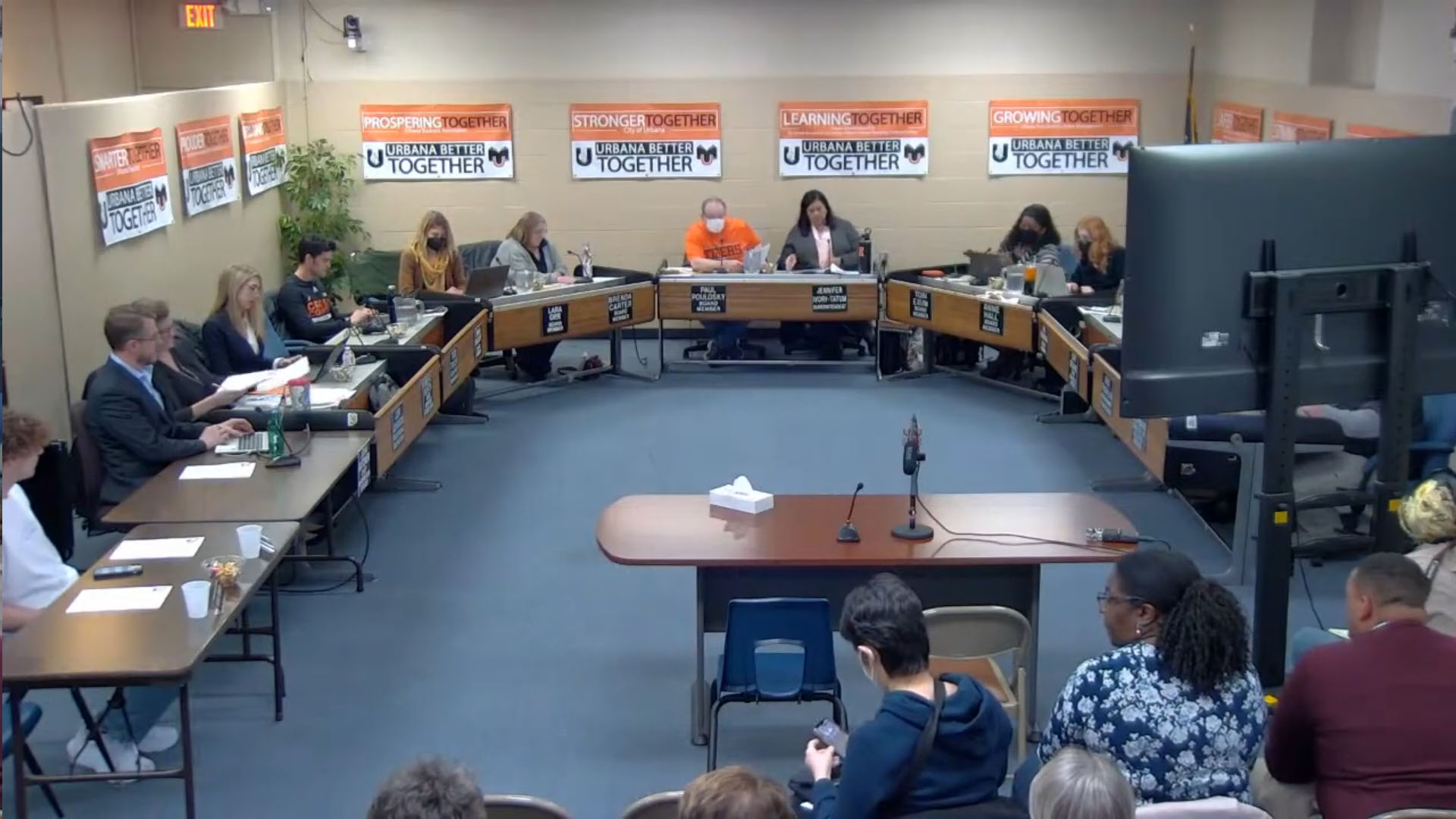
A recent decision by the Urbana School District #116 Board of Education to close an elementary school has brought heavy criticism from the public, along with some troubling questions about the legality of the Board’s actions.
On February 21st, 2023, the seven member Board decided at a public meeting that they would be closing Wiley Elementary School in Urbana, claiming a need to perform asbestos removal work along with other renovation projects, such as heating and cooling, and roof repair. The closure will displace hundreds of people, including students, parents, and teachers.
At this time, the closure appears to be indefinite. The repair work is expected to take more than fourteen months, and no official reopening date for Wiley Elementary has been provided to the public. Some have questioned if the school will ever reopen, speculating that the School District may be planning to sell the property.
Numerous Urbana residents, including parents of students as well as Wiley school teachers showed up to the February 21st meeting to speak against the closure. Aside from the obvious issues of inconvenience and disruption caused by a school closure, a common grievance issued by many speakers was that the School District gave the public very little notice that they were even considering closing Wiley Elementary. The full video of the meeting (nearly five hours in length, including two hours of public input) is provided below.
According to some of the Board members who voted against the Wiley school closure, the Board hadn’t received a single piece of communication from any member of the public who supported the closure.
Check CU reviewed the February 21 meeting documents and found some serious problems. The meeting agendas for that evening do not mention that the BOE would be considering a school closure. The agendas mention the work contracts, but not that Wiley Elementary would be indefinitely closed.
A review of the Board member comments at the same meeting shows that the Board clearly considered their vote on the contracts to be a simultaneous vote for closing Wiley, so why didn’t they make that declaration clear and notorious on their meeting agenda?
The answer likely lies within the requirements of the Illinois School Code on Board of Education procedure (105 ILCS 5/10).
The seriousness of a school closure and the importance of an open public process has been contemplated and addressed by the legislature. 105 ILCS 5/10-22.13 requires that,
“the school board must hold at least 3 public hearings, the sole purpose of which shall be to discuss the decision to close a school building and to receive input from the community. The notice of each public hearing that sets forth the time, date, place, and name or description of the school building that the school board is considering closing must be provided at least 10 days prior to the hearing by publication on the school board’s Internet website.”
The Urbana School District #116 Board of Education did not hold the required public hearings to close Wiley Elementary. Instead, they seem to have attempted to escape the public hearing requirements by cloaking their vote to close the school within more benign sounding agenda items.
The effort to skirt the statutory requirements regarding school closings and their tactic of cloaking the school closure vote likely ran the BOE afoul of the Open Meetings Act (OMA). Section 2.02(c) of the OMA, which requires public bodies to describe on their agenda the subject matter of any final action that may take place at a meeting.
After becoming aware of these issues, Check CU sent a request for review to the Illinois Attorney General Public Access Counselor (PAC). On April 20th, 2023, Assistant Attorney General Katie Goldsmith sent a letter to USD No. 116 Board of Education President, Paul Poulosky, directing him to provide an explanation given the allegations.
The PAC letter is supplied below, and Check CU’s request for review is contained therein. Check CU notes that the PAC will unlikely issue comment on the alleged violations of the Illinois School Code, since the PAC’s jurisdiction is limited to the OMA and FOIA.
